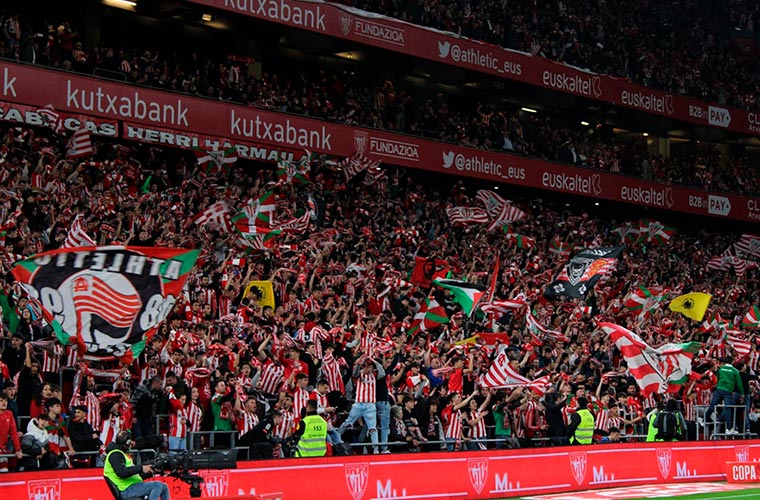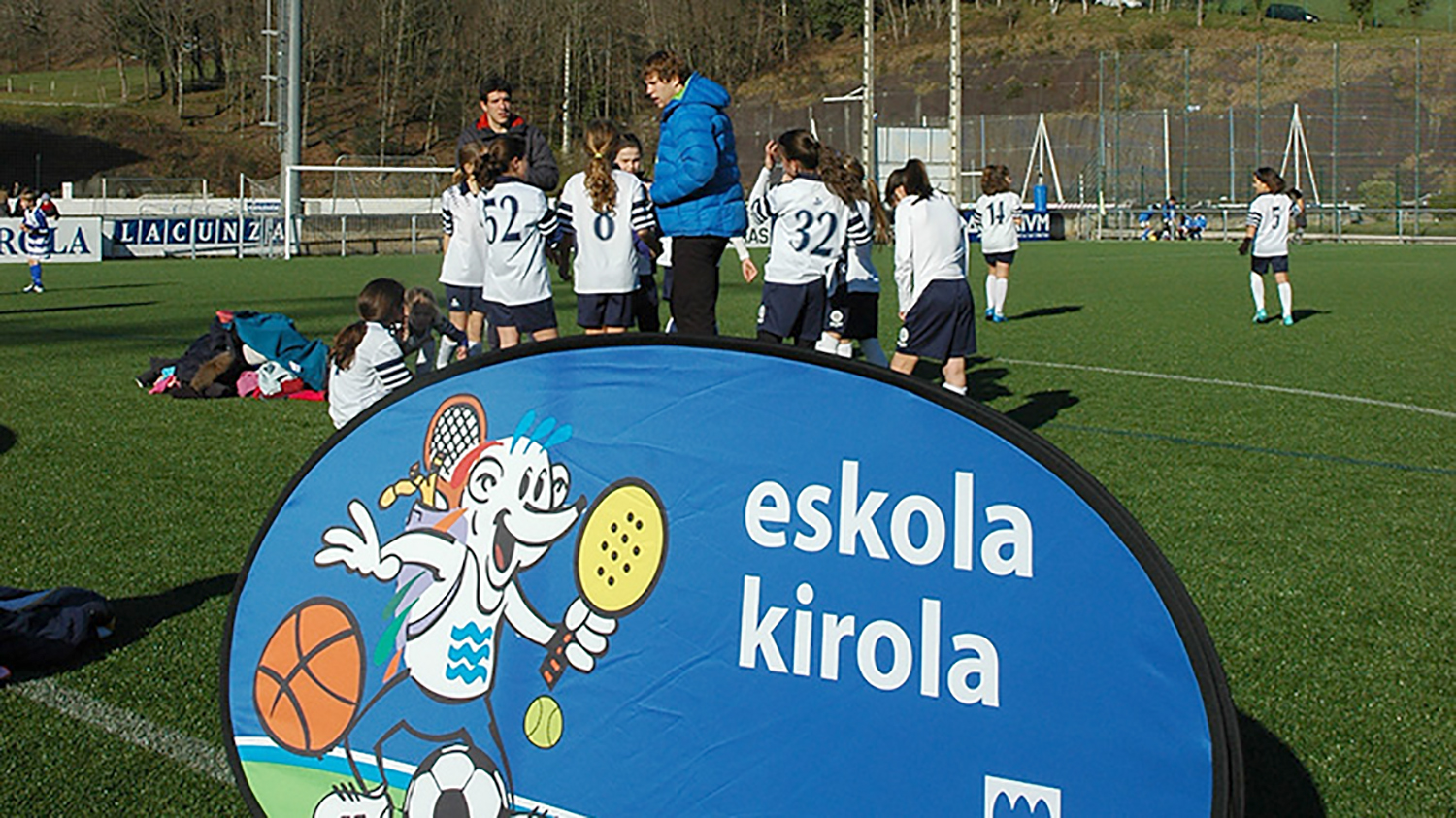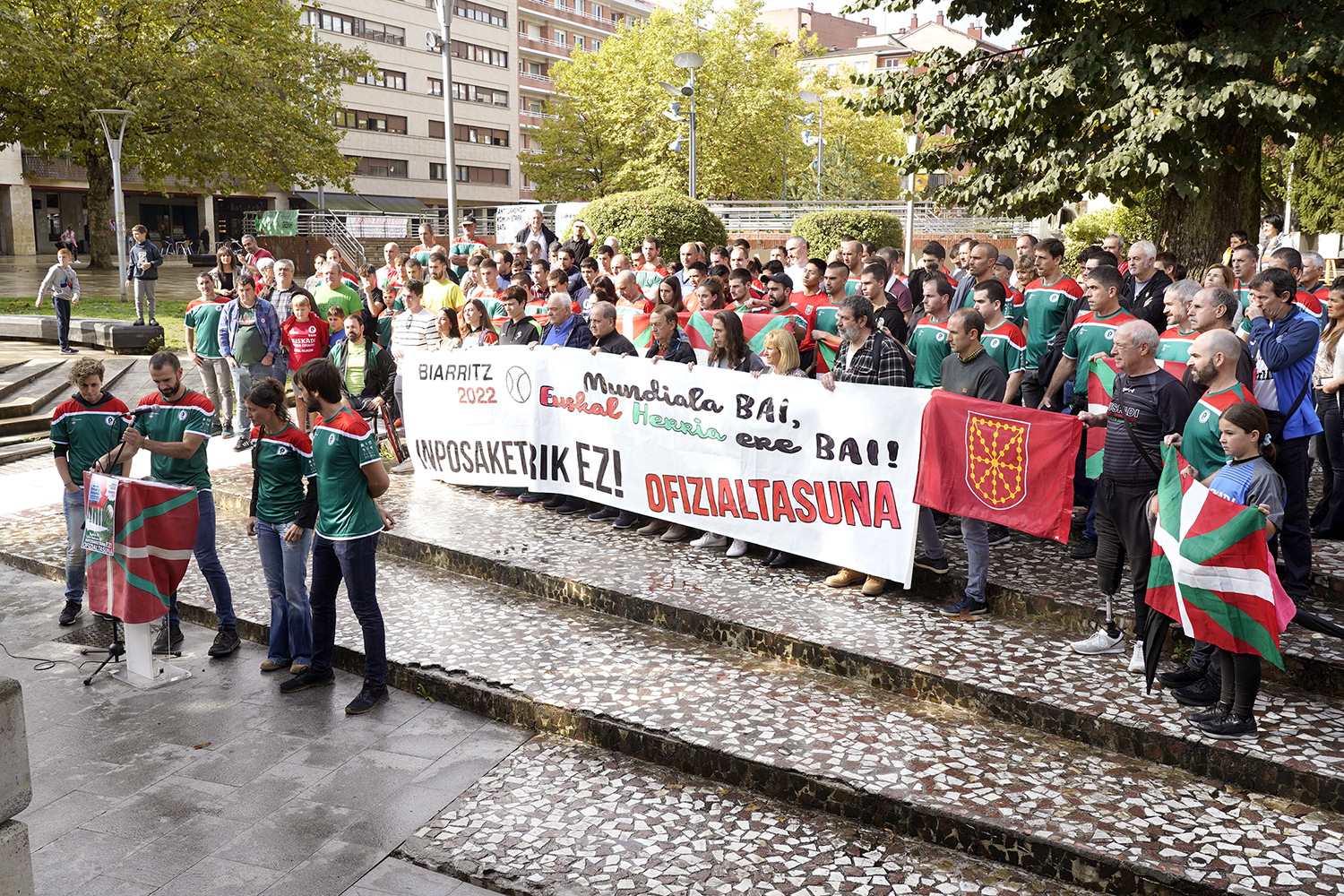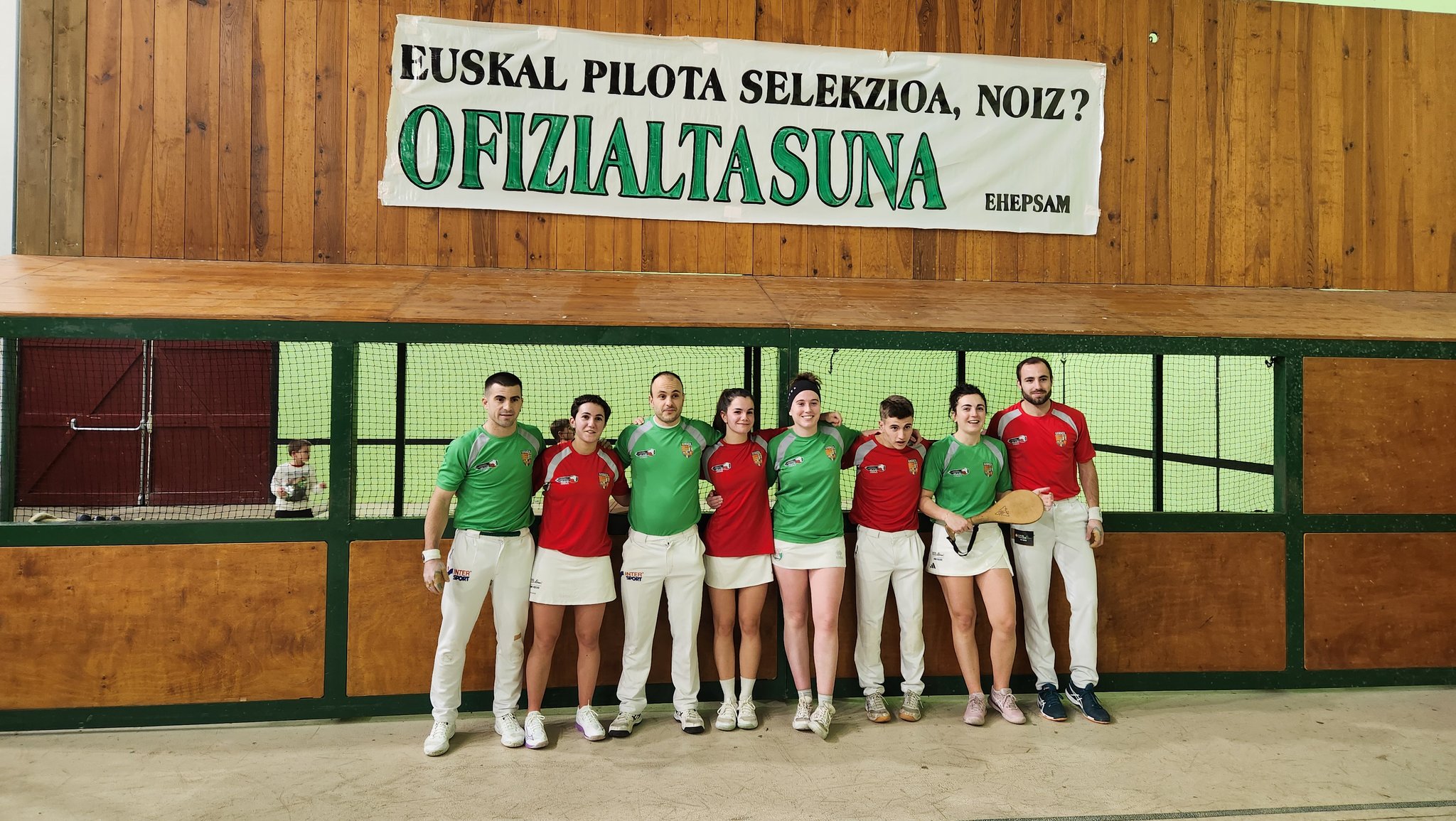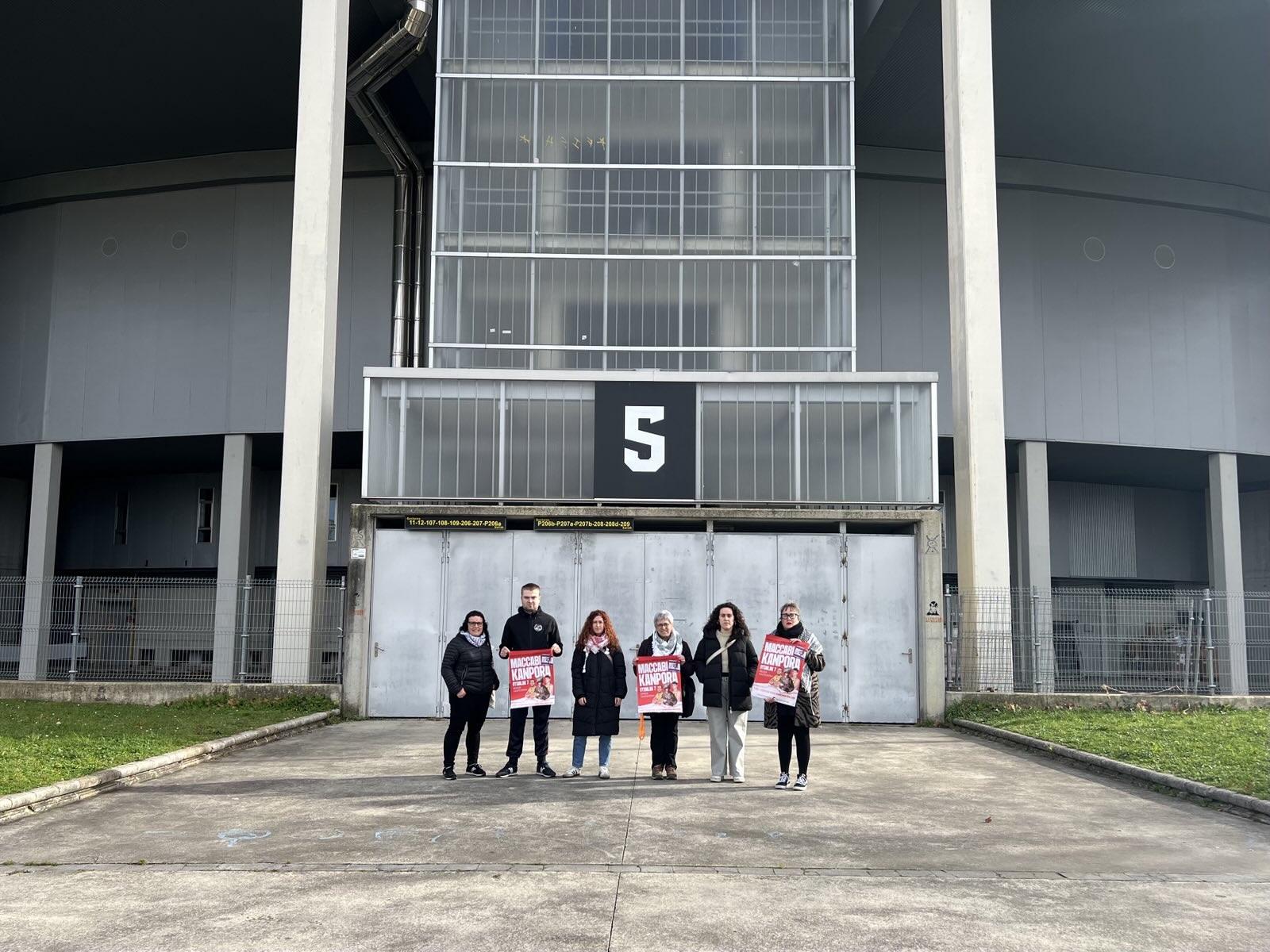Football, violence and aggression, a sport culture?
- In mid-April the Amurrio - Salvatierra party had to be suspended by the judge after terrible attacks. Captain Amurrio Iñigo Fraile and clay player and trainer Angela Vadillo talk about this fact and the violence that occurs in the field.

On April 16, the Amurrio Club-Salvatierra was being a normal match in the Basarte football field, but when there was little time left to finish the match, a player from the Agurain club gave a handful to one from Amurrio. The Ayalese captain Iñigo Fraile explains what happened next: “We approached to see what was going on and also another Salvatian player made a 20-meter race and gave a flying kick to colleague Mikel Elejalde.”
Thus, the judge had to suspend the match and the members of the Salvatierra club had to leave the back door of Basarte. Frail himself has confessed that he has never seen it throughout his life and even more so in a competition where there was no special tension.

Also CD player Orduña Angela Vadillo and the Altzarrate Sports Club coach mention that she has never witnessed such a fight in football: “But I have been told the attacks that have taken place both on the field and outside. In any case, verbal violence is the most common in women’s football.”
Violence in football
If Frail and Vadillo have never seen it and the party was not particularly conflictive, what caused the violence? Aiaraldea Komunikabideak recalls that the previous days saw two highly prestigious attacks on elite football. On the one hand, the player of Real Madrid Fe Valverde, club member Alex Baena Villareal, waited and hit on his way. Meanwhile, Munich’s breakthrough, Sadio Mane Bayern, stabbed his teammate Leroy Sane after losing in the costume against Machester City.
Chronology makes sense. The two tickets were a few days before the Amurrio match. Iñigo Frail explains that he believes that these attitudes mainly influence children: “They copy what their idols do, but seeing Basarte, perhaps we should also reflect on adults.”
“Verbal violence is the most common in women’s football”
Angela Vadillo shares her opinion and believes that the behaviour of elite players does not often help izaten.Ezta either the media or clubs. For example, Marc, the most widely read newspaper in Spain, extended and approved the version of Fe Valverde, and Real Madrid has taken no action against the player, not even his coach. These criteria can be compared to those shown by Bayern Munich.
The Germans put a financial penalty on Man and kicked him out. In addition, the attacker had to speak for the aggressor so that he was not expelled from the team, which was the intention of the Bavarian club.
Insults and justifications
The origin of both attacks, according to the aggressors themselves, was an offensive comment (although in both cases one can question versions to a greater or lesser extent). Be it true or lie, both Frail and Vadillo have confirmed that verbal violence is very common in football. “I have played at level 3 for several years and that was very common, and physical attacks were also frequent, such as blows on the back,” Frail said.
Angela Vadillo underlined that in female football verbal violence is very common at times of tension of the games: “It is not as in professional football, players do not know us and there are no personal comments, but it happens often. In any case, there are no comments to justify the attack on anyone, both inside and outside the football field.”
Violence in football's DNA?
When the aggressions, of both kinds, are so naturalised, must we conclude that they are within the nature of this sport? Iñigo Frail and Angela Vadillo are unclear. They believe that all players should reflect critically on their behavior within the field and that Frail and Vadillo, as coaches, encourage diversion, non-simulation and respect for the judge’s work.
“Children copy what their idols do, but seeing Basarte we may also have to reflect on adults”
It is clear, however, that, apart from their own attitude, football organisations can do more to prevent violence. In recent years progress has been made against racism and the same should be done with regard to the attacks that take place both in the field and outside. Both are pessimistic and of the same opinion: “We must change a lot in order for this situation to occur.”
You just have to compare it to a sport like rugby. This sport is much more violent than football (pushing or throwing opponents is part of the game), but the fight against the judge is heavily punished and when the matches end the so-called third party comes. That is, the players of the two teams together celebrate play in a relaxed atmosphere between their peers, while eating a snack or drinking thunder.
15 urteko emakume bati egin dio eraso Izarra klubean jarduten zuen pilota entrenatzaile batek.
Iñigo Cabacas Herri Harmaila taldea eta Athleticen arteko harremana nahaspilatuta dago azkenaldian. Iñigo Cabacas Herri Harmailako Iñigorekin hitz egiteko aukera izan dugu astelehenean.
The achievement of the Euskadi Selection has undoubtedly been a historic achievement. But if you stick to that, for many Basques – I too, because I am Navarro – it will be the darkest and saddest day. After enjoying the joy and warmth of the first few days, let's go back to... [+]
After so many years of struggle for it, 34 years, precisely, we are very pleased with the decision taken a few days ago, on 28 December, Innocent Day, in Pamplona, at the assembly organized by the International Federation of Basque Ball. Well, from now on we will have the... [+]












